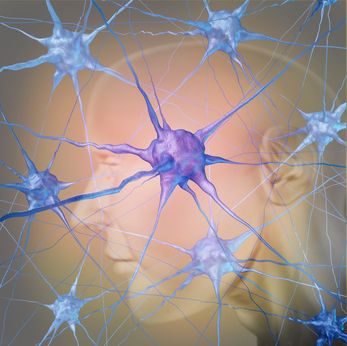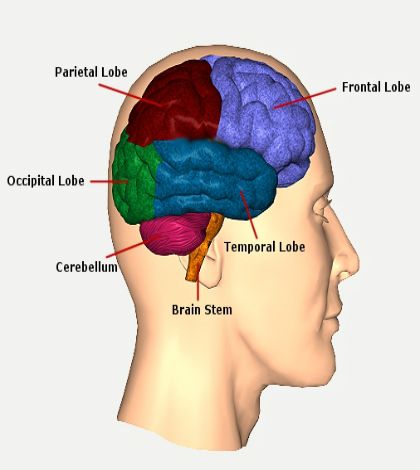Info on Alzheimer’s Disease
Learn about the latest information on Alzheimer's disease, including causes, risk factors, symptoms, and prevention strategies.

Here is info on Alzheimer’s Disease
The amount of info on Alzheimer’s disease available is enormous. According to the article, “Forecasting the Global Burden of Alzheimer’s Disease” published in a 2007 issue of Alzheimer’s and Dementia, one in 85 people worldwide are expected to develop Alzheimer’s by 2050. This astonishing projection is the result of an aging population, advances in health care and development of medications capable of prolonging the human life.
Continuous research concerning the causes of Alzheimer’s and Alzheimer’s prevention strategies has consistently provided doctors with cutting-edge Alzheimer’s disease information that can help delay the onset and progression of the disorder. For example, we now know that risk factors involving lifestyle, diet and the presence of certain medical conditions strongly influence whether someone eventually develops Alzheimer’s. Diabetes, heart disease, cancer, hypertension, high cholesterol, lack of exercise and low rates of cognitive stimulation commonly affect people who are diagnosed with Alzheimer’s Disease (AD).
Experiments with rats and mice (animals that exhibit striking physiological similarities to humans) that are kept in mentally stimulating environments and on calorie-restricted diets possess hippocampus neurons that are resistant to damage and death. In addition, the creation of new neurons (neurogenesis) increases when these rodents engage in regular exercise as well as their overall health.
Signs of Cognitive Impairment Possibly Indicating Alzheimer’s Disease
Assessing the volumes of Alzheimer’s disease information provides an overview of the ten typical behaviors often affecting patients with moderate to severe dementia. These are:
- Delusions (usually paranoid)
- Visual and auditory hallucinations
- Anxiety
- Long and short term memory loss
- Inappropriate euphoria
- Dysphoria (depression, discontentedness)
- Disinhibition
- Irritability
- Impaired motor behavior
- Disturbed wake/sleep cycles
More info on Alzheimer’s Disease
Testing for Alzheimer's Disease
While a stereotypical notion of an Alzheimer’s patient is one who is loud and combative, the most common behavior seen in AD patients is actually apathy, with nearly 3/4 experiencing depressive symptoms.
Agitation is the second most common behavioral aberration, with anxiety being third and disinhibition, or lack of socially appropriate behavior, affecting about 35 percent of AD patients.
Hallucinations and delusions represent symptoms of advanced Alzheimer’s, emerging when widespread damage to nerve cells occurs in the occipital lobe and primary auditory cortex.

The Amyloid Hypothesis
Alzheimer’s disease information culled from neurological research studies has revealed that amyloid beta deposits (Aβ) are the primary cause of AD. Support for the amyloid hypothesis initially appeared in 1991, when neurologists discovered that the gene site for amyloid beta precursor proteins were on chromosome 21 and that individuals born with Down syndrome (trisomy 21) begin to present AD symptoms around 40 to 45 years of age.
Updated nearly a decade later, this hypothesis now involves the formation of neurofibrillary tangles and amyloid plaques within the brains of AD patients that accelerate neuronal degradation and produce the traditional symptoms of Alzheimer’s. Amyloid (protein) plaques develop between nerve cells while tangles made of tau proteins develop within neurons and damage the cell’s microtubules. These structures assist in the transportation of nutrients throughout the cell and fail to function when restricted by tau protein tangles.
A lesser known hypothesis concerns myelin reduction in the brain caused by the normal aging process. When myelin, a fatty substance surrounding neuronal axons to facilitate signaling between nerve cells, starts to break down in older individuals, toxic amounts of iron are releases causing diminished brain functioning and cognitive impairment.
Alzheimer’s Disease Information and Genetics
Alzheimer’s has a definite genetic component precipitated by various single-gene mutations on the first, 14th and 21st chromosomes. These mutations produce abnormal proteins that become precursors to proteins causing plaques and tangles specific to AD. One parent carrying any of these genetic mutations has a 50/50 chance of passing this mutation on to a son or daughter. Although tests for detecting these mutations exist, science has no way of predicting whether the mutation will eventually be expressed nor can we prevent Alzheimer’s from occuring if genetically embedded within a person’s DNA.
Slowing the Progression of Alzheimer’s Disease
Ways in which people can possibly prevent or slow the development of the disease include:
Remaining intellectually active–playing board games like chess, taking higher education classes, working crossword puzzles, learning a new language and engaging in socially stimulating interactions with others are some ways research suggests can effectively reduce the severity of AD symptoms
Participating in a regular exercise routine–walking, playing tennis, swimming, performing aerobics or bicycling keep the body in good health prevents weight gain, high blood pressure and other diseases from affecting the blood flow to the brain. The brain needs large amounts of oxygen and glucose to function properly and blood is its main supplier of these nutrients.
Research performed by Oxford University neuropsychologist Dr. Celeste de Jager in 2011 revealed that taking folic acid and vitamins B12 and B6 in medicinal amounts resulted in reducing brain shrinkage of aging individuals by 30 percent over the course of a 24-month study. These nutrients are known to regulate blood levels of homocysteine, a chemical found in the brains of AD patients that damages vessels if not controlled.
For people coping with someone who has dementia, Alzheimer’s disease information can provide helpful advice and valuable insight into the causes and medications that are currently used in relieving the devastating symptoms of such a destructive disease.
Sources
http://www.ncbi.nlm.nih.gov/pmc/articles/PMC3091392/
http://psycnet.apa.org/psycinfo/2009-07211-009
http://www.nia.nih.gov/alzheimers/publication/alzheimers-disease-genetics-fact-sheet
http://www.guardian.co.uk/science/2011/sep/13/b-vitamins-alzheimers
You might also like this article:







